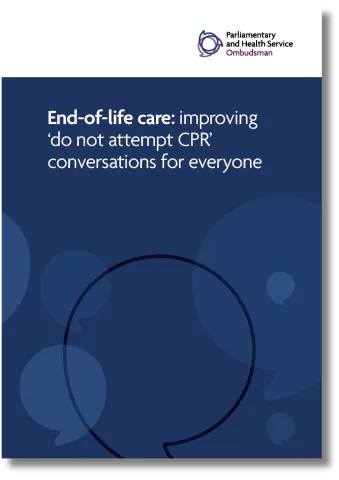In our new report we are calling for urgent improvements to the process and communication surrounding do not attempt cardiopulmonary resuscitation (DNACPR), so doctors, patients, and their loved ones can make informed choices about their care.
Although DNACPR discussions are positive when done in the right way, it is clear this is not always happening and improvements to the discussion process needed. They usually take place in emergency settings, which is often too late and carried out under extreme stress.
Conversations are also left to a patient’s family, and in some instances a patient was left out of the conversation entirely. In some cases, doctors breached people’s human rights by not even informing them or their family that a DNCAPR notice was made.
The report also uncovers fears about ableist and ageist attitudes and behaviours within the NHS.
Key findings include:
- a lack of accessible information given at the time or before DNACPR conversations take place
- issues with record-keeping and documenting decisions, with up-to-date information not following a patient through the medical system
- a lack of public awareness about CPR and who is responsible for making a DNACPR decision.
Download a PDF [46KB] or Easy Read [PDF 3MB] version of the report.

